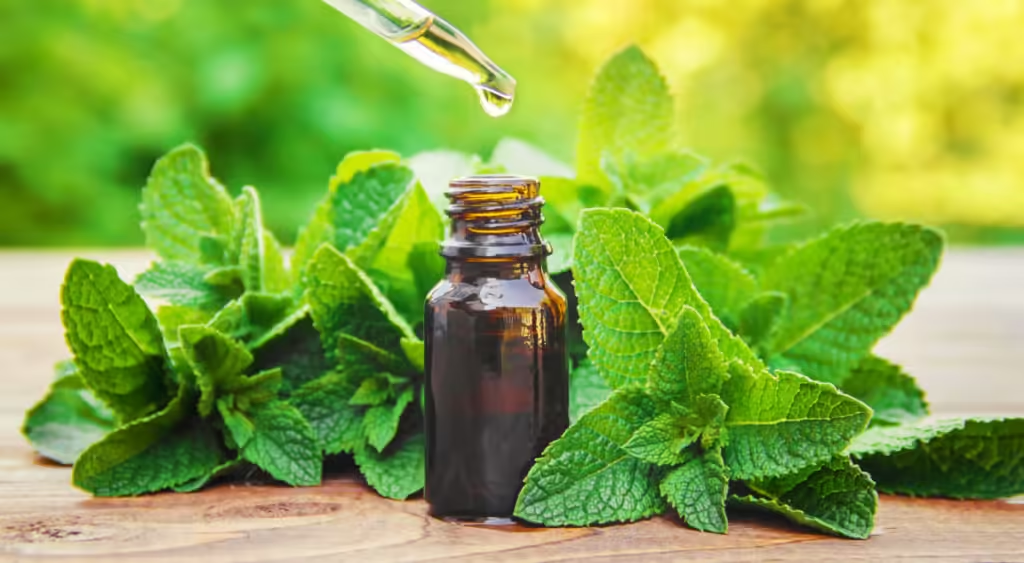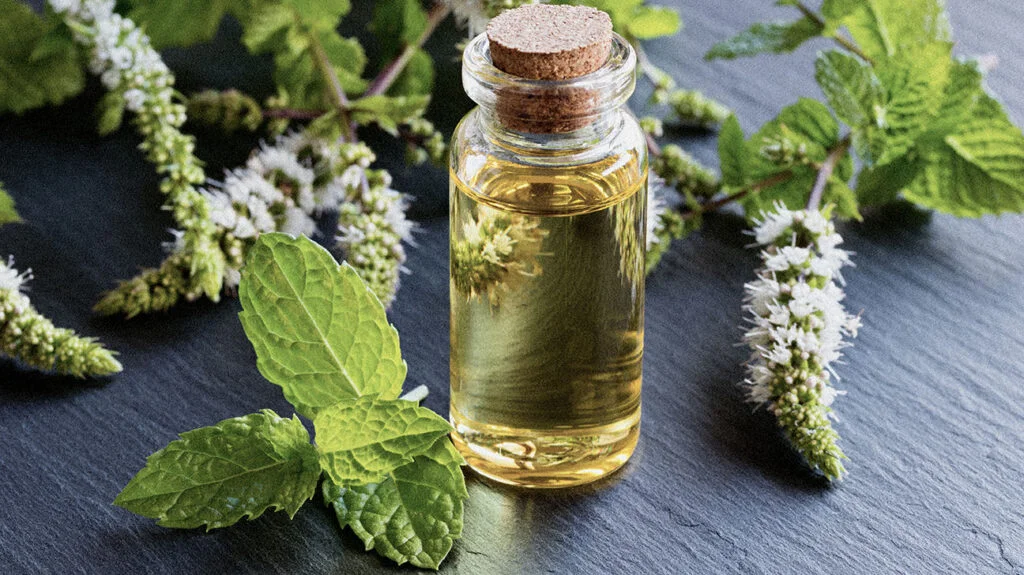
Peppermint essential oil is one of the most widely recognized and used essential oils in natural medicine. Known for its refreshing scent and cooling sensation, this versatile oil has been used for centuries to treat a variety of health issues. Whether you’re looking to alleviate headaches, improve digestion, or boost your energy levels, peppermint oil offers a natural solution that can be easily incorporated into your daily routine.
What is Peppermint Essential Oil?
Peppermint essential oil is derived from the leaves of the peppermint plant (Mentha piperita), a hybrid of watermint and spearmint. The oil is extracted through steam distillation, a process that preserves its potent active compounds, including menthol, menthone, and various other terpenes. These compounds give peppermint oil its distinctive minty aroma and its powerful therapeutic properties.
Health Benefits of Peppermint Essential Oil
- Relief from Headaches and Migraines
One of the most popular uses of peppermint essential oil is for the relief of headaches and migraines. The menthol in peppermint oil has a cooling effect that helps to relax the muscles and reduce tension, which can be particularly effective for tension headaches. In addition, peppermint oil has been shown to improve blood circulation, which can also help to alleviate headache pain.
To use peppermint oil for headaches, dilute a few drops with a carrier oil, such as coconut or almond oil, and apply it to your temples and the back of your neck. Gently massage the area in circular motions to enhance the effects. You can also inhale the aroma directly from the bottle or add it to a diffuser for a soothing environment.
- Improved Digestion
Peppermint oil is a well-known remedy for digestive issues, including indigestion, bloating, and gas. The oil works by relaxing the muscles of the gastrointestinal tract, which can help to reduce symptoms of irritable bowel syndrome (IBS) and promote smoother digestion. Additionally, peppermint oil has antispasmodic properties that can relieve stomach cramps and nausea.
To support digestion, you can add a drop of peppermint oil to a glass of water or herbal tea and drink it after meals. Alternatively, you can dilute the oil with a carrier oil and rub it onto your abdomen in a clockwise motion to help ease digestive discomfort.
- Enhanced Respiratory Function

Peppermint essential oil is highly effective for clearing the respiratory tract and alleviating symptoms of colds, sinusitis, and other respiratory conditions. The menthol in peppermint oil acts as a natural decongestant, helping to open up the airways and make breathing easier. Its antimicrobial properties also help to fight off infections and reduce inflammation in the respiratory system.
To use peppermint oil for respiratory relief, add a few drops to a bowl of hot water and inhale the steam, or diffuse the oil in your home to purify the air. You can also mix peppermint oil with eucalyptus oil for an even more potent respiratory blend.
- Natural Pain Reliever
Peppermint oil’s cooling and anti-inflammatory properties make it an excellent natural pain reliever. It can be used to soothe sore muscles, joint pain, and even menstrual cramps. The menthol in peppermint oil not only provides a cooling sensation but also helps to numb the pain and reduce inflammation.
For muscle or joint pain, dilute peppermint oil with a carrier oil and massage it into the affected area. You can also create a soothing bath by adding a few drops of peppermint oil to warm water. For menstrual cramps, apply the diluted oil to your lower abdomen and gently massage it in.
- Boosted Energy and Mental Clarity
Peppermint essential oil is known for its invigorating properties, making it an ideal natural remedy for fatigue and mental fog. The refreshing scent of peppermint can help to stimulate the mind, improve concentration, and increase alertness. Whether you’re feeling sluggish in the morning or experiencing an afternoon slump, peppermint oil can provide a quick pick-me-up.
To boost your energy levels, inhale peppermint oil directly from the bottle or add a few drops to a diffuser. You can also mix peppermint oil with a carrier oil and apply it to your wrists, neck, or chest for a refreshing burst of energy.
How to Use Peppermint Essential Oil Safely
While peppermint oil offers numerous health benefits, it’s important to use it safely to avoid potential side effects. Here are some tips for safe use:
- Dilution: Always dilute peppermint oil with a carrier oil before applying it to the skin, as undiluted oil can cause irritation, especially in those with sensitive skin.
- Avoid Eyes and Mucous Membranes: Keep peppermint oil away from your eyes, nose, and other mucous membranes, as it can cause a burning sensation.
- Not for Young Children: Peppermint oil should not be used on infants or young children, as the menthol can cause respiratory distress.
- Consult a Doctor: If you’re pregnant, breastfeeding, or have a medical condition, consult with a healthcare provider before using peppermint oil to ensure it’s safe for you.
Conclusion
Peppermint essential oil is a powerful natural remedy that can enhance your health and well-being in a variety of ways. From relieving headaches and improving digestion to boosting energy and supporting respiratory health, this versatile oil is a valuable addition to any natural medicine toolkit. By incorporating peppermint oil into your daily routine, you can enjoy its refreshing scent and therapeutic benefits for a healthier, more vibrant life.









